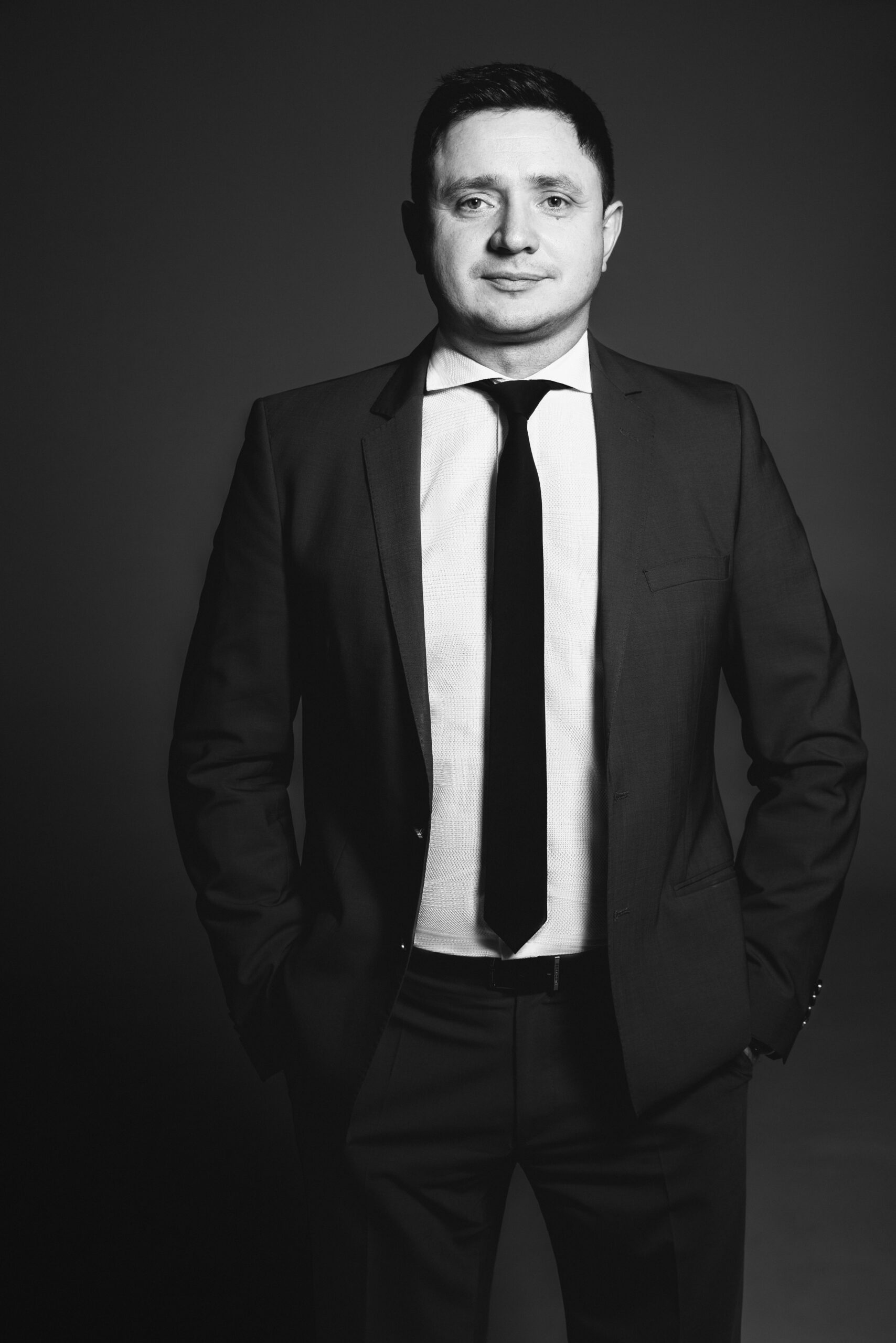Chaos, PR, and Pressure: Investigating Crimes in the Defense Sector
Projects, Analytics
Criminal Law and White Collar Crime
31 July 2024

Investigations into crimes in Ukraine’s defense sector often feel more like PR campaigns, mired in both chaos and uncertainty.
War is an incredibly expensive undertaking. Russia, the terrorist state, spends about USD 300 million a day on its insidious war effort. In contrast, based on last year’s budget, Ukraine spends about 60% less on its defense – about USD 120 million a day. Unfortunately, such huge sums are almost a guarantee of various forms of corruption and fraud.
Over the past year and a half or two, Ukrainians have often heard about high-profile defense corruption cases through the mass media. They’ve watched videos and photos of searches as if they were reality shows, and celebrated court decisions imposing preventive measures on suspects. While the media coverage was often outstanding, the legal proceedings were often chaotic. This chaos undermines the effectiveness of holding perpetrators accountable and does little to truly cleanse the defense sector of unscrupulous individuals.
Is it really necessary to clarify that any crime, even the slightest violation in this area, endangers the health and lives of Ukrainian defenders who are currently protecting Ukraine from Russian aggression?
I propose to analyze some media cases.
Double and Triple Jurisdiction
It is clear that defense-related crimes are currently being investigated by virtually every law-enforcement agency. Often these crimes are “duplicated” or even “triplicated”. For example, the National Police may handle fraud cases, the State Bureau of Investigation may focus on abuses by Defense Ministry officials, and the National Anti-Corruption Bureau may target corrupt practices, and so on. In essence, there is no clarity as to which agency should investigate abuses in the defense sector.
“Two Trials for Lviv Arsenal”.
This is about the well-known corruption scandal involving the Lviv Arsenal. In 2022, the Lviv Arsenal signed a contract with a single supplier for 100,000 mortar shells worth USD 36 million. Although partial payment was made, no units of the goods have been received so far.
This case serves as a glaring example of the aforementioned problem of “double” jurisdiction, which has sparked considerable debate, including within the judiciary. Investigating judges working on the same case materials have adopted different decisions. Equally disturbing is the fact that the High Anti-Corruption Court of Ukraine accepts applications for preventive measures submitted by police officers. It’s simply nonsense!
The result of this jurisdictional confusion is that in many cases, instead of effectively uncovering crimes and preventing similar violations in the future, there is only a superficial attempt to appear to be fighting corruption.
High-profile Hrynkevyches Case: No Corruption?
This is a prime example of the questionable effectiveness of investigating embezzlement in the defense sector. Companies in the orbit of the Hrynkevyches signed contracts with the Ministry of Defense and received advance payments. These funds were earmarked for the provision of goods, personal protective equipment, and food for the Armed Forces of Ukraine. However, the contracts were not fulfilled as expected and, according to law-enforcement officials, those involved in the case misappropriated substantial state funds.
In an effort to close the investigation, one of the suspects in the case attempted to bribe the deputy head of the State Bureau of Investigations. He offered USD 500,000 in exchange for assistance in recovering confiscated assets. He also requested that no further legal action be taken and that a decision be made to close the criminal investigation. Law-enforcement officials arrested the individual during the transfer of the USD 500,000 and formally charged him with bribery.
Judging by the actions of our law-enforcement agencies, they did not observe any signs of corruption in the behavior of the suspects. It’s no laughing matter, because in all these high-profile cases, members of this famous family have never been suspected of violating anti-corruption laws. Instead, they were accused of fraud (Article 190 of the Criminal Code) and leading or participating in a criminal organization (Article 255 of the Criminal Code). The investigations were conducted by the National Police and the State Bureau of Investigations. The involvement of representatives of the National Anti-Corruption Bureau in the investigation of the activities of this family remains puzzling to this very day.
However, for most it doesn’t mean much, because the information presented was quite well prepared – one could even think that finally some progress is being made, and real efforts are being made to deal with those who might have harmed the Ukrainian army.
Personally, I wouldn’t be too quick to draw optimistic conclusions, because based on what we see: according to the logic of law-enforcement officials, the hypothetical Hrynkevyches are defrauding the state by delivering goods at inflated prices or not fulfilling the terms of the contract at all, but still receiving funds from the state. These actions are classified as fraud.
And now this question arises: Could the companies of these “businessmen” have won tenders on a consistent basis for the supply of uniforms to the Ministry of Defense over the years, totaling more than 1.5 billion hryvnias, without the involvement of government representatives?
As a lawyer in the WCC area and as the head of the Public Anti-Corruption Council at the Ministry of Defense, I can confidently say that this is highly unlikely.
Amidst all the hoopla surrounding Instagram searches and preventive measures, one critical piece of information seems to be missing: has anyone from the government side been charged with supplying substandard goods to the army? While the media portrays a bold fight against corruption, the nuance lies in the fact that law enforcement does not classify this offense as corruption. As a result, it’s entirely possible for someone to escape the lawful consequences of a potential wrongdoing and continue to engage in misconduct in the future.
Appointed Criminals
Another common tactic used by certain members of law enforcement in the public fight against corruption is the practice of scapegoating.
Before discussing the next case, I want to make it clear that I am not taking sides, as I am not involved in this case as a lawyer. However, based on the investigation process (at least as it has unfolded in the public domain and from the materials available to me as a member of the Anti-Corruption Council at the Ministry of Defense), I am increasingly convinced that instead of conducting an impartial and unbiased investigation, individuals are being appointed as “scapegoats” for public punishment.
Let’s take, for example, the widely publicized case of Ukrainian Defense Ministry officials – former Deputy Minister Vyacheslav Shapovalov and former head of the Defense Ministry’s State Procurement Department Bogdan Khmelnytskyi. Both were suspected of embezzling budget funds for the procurement of body armor and winter uniforms for units of the Armed Forces of Ukraine, obstructing the lawful activities of the Armed Forces of Ukraine and other military formations (which is still a widespread accusation today), among other things.
The fact is that at the Anti-Corruption Council we looked at specific incidents involving these individuals. And based on the cases that we looked at; I could not definitively say that it was corruption.
We only have to remember the first months of full-scale Russian aggression. There was panic and a complete lack of understanding of what to do next, because the army had to expand rapidly from 400,000 to one million soldiers. This meant that the state had to procure 600,000 uniforms in a short period of time.
As participants in these events reported, they were faced with a dilemma: either have nothing at all, or settle for something, even if it meant compromising on quality. That’s one way to look at the situation.
But there’s another perspective to consider. As a lawyer and as head of the Anti-Corruption Council of the Ministry of Defense, I’m forced to ask some questions: Was there a thorough investigation carried out into the activities of those suppliers who provided substandard products? And more fundamentally, should this be considered criminal behavior? If so, can it be classified as corruption? Is there concrete evidence of illicit profits or interference with the Armed Forces of Ukraine? Or could this simply be a case of routine business where a supplier promptly delivered inferior but significant quantities of goods?
Though we’re still awaiting answers to all these questions, the public has been presented with two individuals who, according to the investigation’s findings, bear the brunt of responsibility for all the corruption within the Ministry of Defense.
Moreover, in the course of investigating these cases, law- enforcement officials often take actions that could be interpreted as hindering the operations of the Armed Forces. How does this take place? Well, they might arrest entire shipments or the majority of goods. Then these seized goods can languish in warehouses for months, deteriorating, rather than being used by our military.
Reflecting on the analysis of this case, a crucial question arises: where is the boundary drawn when the direct investigation of a crime within the defense sector poses risks to our nation’s defense capabilities?
From Investigative Chaos and Law- Enforcement PR to Deliberate Pressure
Pressure from law-enforcement agencies is one more factor that significantly and adversely affects the development of the defense sector.
Unfortunately, in the course of my legal practice, I’ve come across numerous cases in which certain unscrupulous representatives of law-enforcement agencies have, for their own benefit, initiated procedural disruptions against domestic manufacturers of weapons or military goods. Without legitimate grounds, they conduct searches of production facilities, confiscate equipment, and summon individuals for questioning. For instance, in our experience, directors, accountants and legal representatives of enterprises that relocated to Western Ukraine were unreasonably summoned for questioning in Kyiv, disrupting their operations and diverting their focus from their primary activities.
As a result, the operations of these companies are crippled. And yet such high-profile cases often end inconclusively, with no evidence of wrongdoing uncovered by the investigation. When qualified attorneys are involved, the “fire” is quickly extinguished. This is because such actions are often not aimed at uncovering wrongdoing, but rather at gaining certain economic or political advantages so that the company can continue to operate peacefully. This begs the question: How has the quality of investigations in the defense sector improved in almost 2.5 years of russia’s full-scale war against Ukraine? What are the real results, and is this preventive function being fulfilled to prevent further crimes?
Unfortunately, it’s not just the manufacturers themselves who suffer as a result of such actions by certain unscrupulous law-enforcement officials, but our troops too.
I always stress this point, and I’ll repeat it here again: supporting domestic manufacturers includes preventing unwarranted pressure from law- enforcement.
Chapters
Key partners
Related articles



